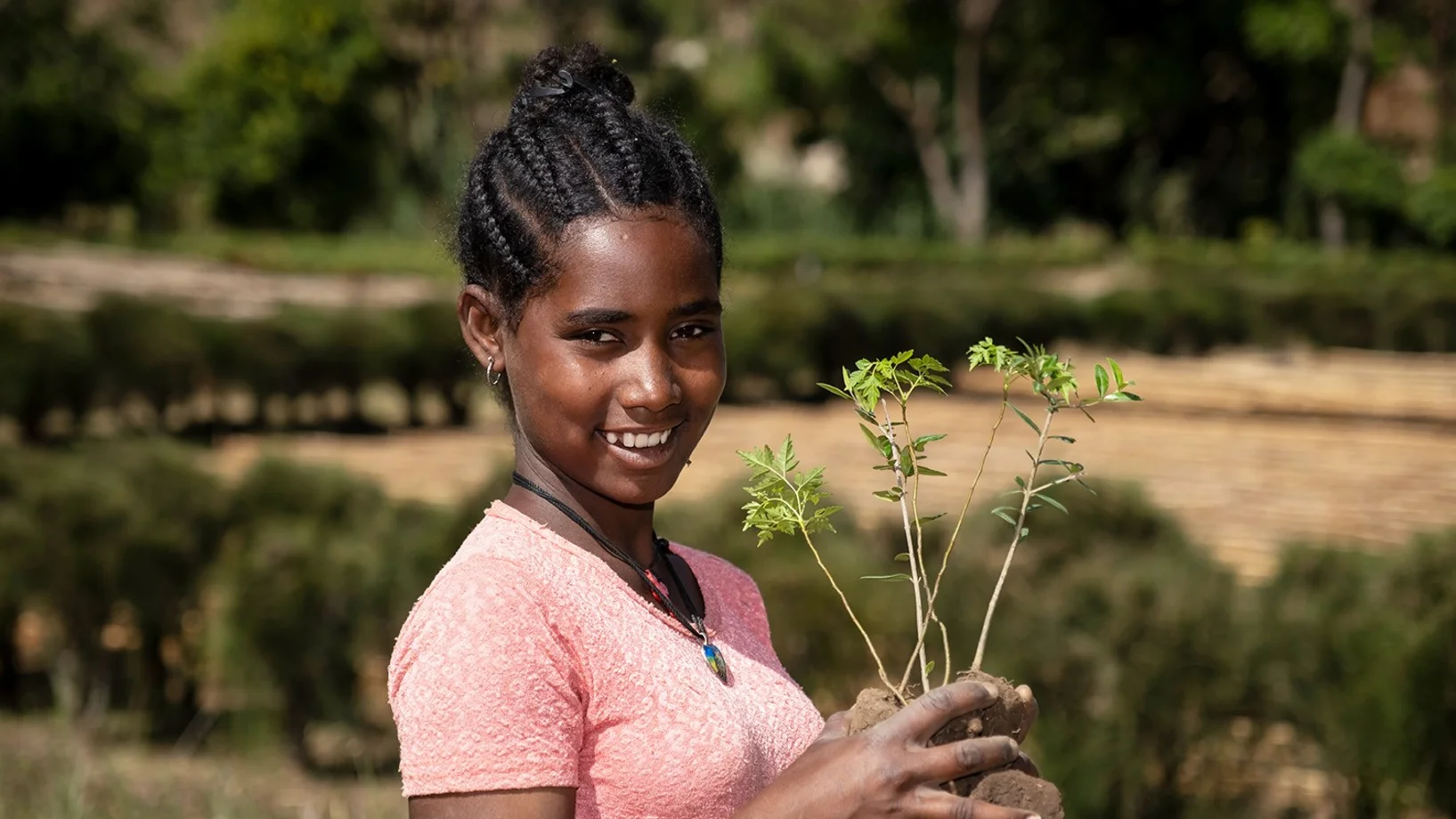Bigger harvests and income
The layer of earth that feeds us all is thin and vulnerable. The fertile topsoil is rarely thicker than 30 centimeters. If it is overused or washed away, harvests will decline. This is a big problem, especially in Africa: Because people cut down trees on slopes out of poverty, rainfall has destructive power and washes away the fertile soil.
Swiss farmers can counteract this with artificial fertilizer when the soil is exhausted. Ethiopian small farmers often lack money and access to this option. In addition, small farmers have too little land. On average, a family only has 0.25 to a maximum of one hectare of land available - that is not enough to feed the growing population.
Menschen für Menschen works with local agricultural experts to ensure that families can stay in their homeland. The project staff go from farm to farm and advise the farmers individually. They get improved seeds and more productive livestock. Tree planting is intended to stop soil erosion. Because the fields are so small, Menschen für Menschen promotes alternative sources of income such as small livestock breeding and small-scale trading. The training is very important. The farmers learn to make optimal use of their resources - for example through cover crops such as beans, which enrich the soil with nitrogen and provide people with valuable proteins.



